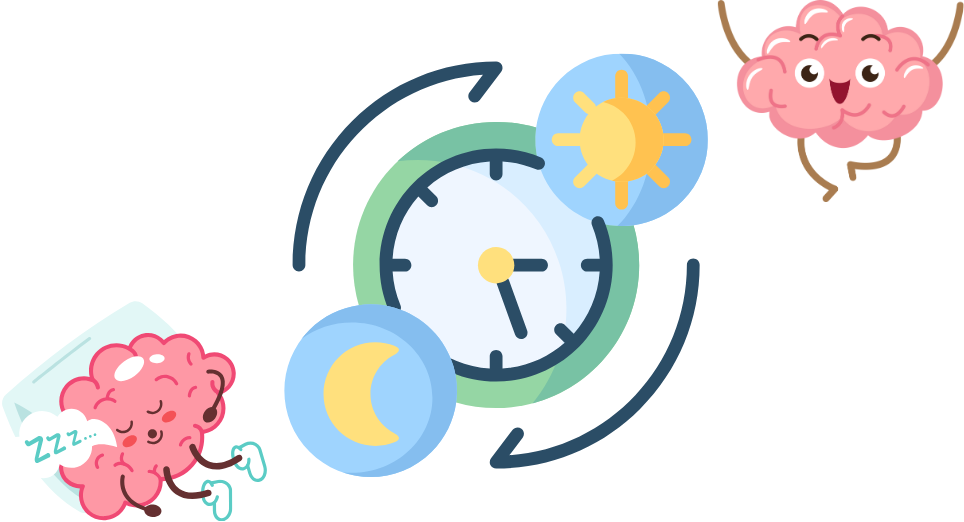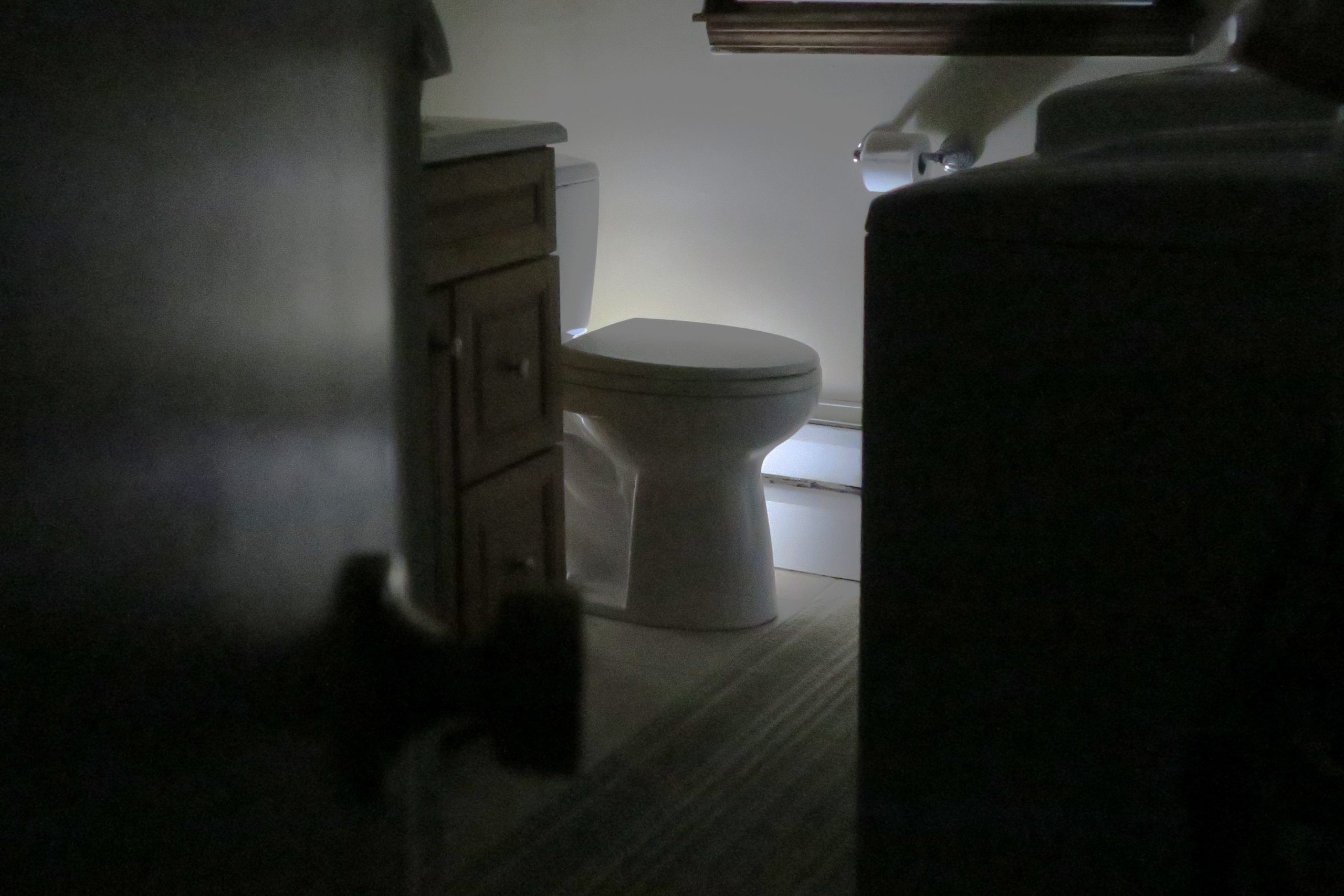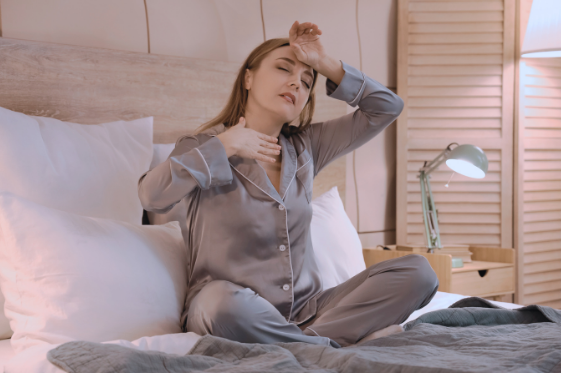Hormones and Sleep
Your body makes different hormones at different times of the day. In the morning, your body releases hormones that promote alertness, such as cortisol, which helps you wake up. At night, your body releases melatonin in response to darkness. Melatonin helps with the timing of your circadian rhythms (your internal clock) and sleep. Being exposed to light at night can block melatonin production.

Melatonin
Melatonin is a hormone that your brain produces in response to darkness. It helps with the timing of your circadian rhythms (24-hour internal clock) and with sleep. Being exposed to light at night can block melatonin production.
Melatonin supplements may help with certain conditions, such as jet lag, delayed sleep-wake phase disorder, some sleep disorders in children, and anxiety before and after surgery. According to practice guidelines from the American Academy of Sleep Medicine (2017) and the American College of Physicians (2016), there’s not enough strong evidence on the effectiveness or safety of melatonin supplementation for chronic insomnia to recommend its use.
In the United States, melatonin is considered a dietary supplement. This means that it’s regulated less strictly by the Food and Drug Administration (FDA) than a prescription or over-the-counter drug would be. In several other countries, melatonin is available only with a prescription and is considered a drug.
To learn more about melatonin supplements, talk to your health care provider. They can share more information on side effects, drug interactions, drug allergies, safety for pregnant or breastfeeding women, and if melatonin is appropriate for your age group.
Women & Insomnia
One in four women has some insomnia symptoms, such as trouble falling asleep, trouble staying asleep, or both. Women may be more likely to have insomnia than men because women experience unique hormonal changes that can cause insomnia symptoms. These include hormonal changes during:
- The menstrual cycle
- Pregnancy
- Perimenopause and menopause
Hormones, such as estrogen and progesterone, are related to the thickening and shedding of the uterine lining during the menstrual cycle, fetal development, and labor and delivery. Changes in these hormone levels can lead to:
- Trouble concentrating
- Irritability
- Fatigue
- Problems going to sleep and staying asleep
- Hot flashes
- Night sweats
- Leg cramps
- Muscle aches
- Needing to use the bathroom

These symptoms can lead to poor quality sleep and insomnia symptoms. Contact your healthcare provider if you are experiencing these symptoms and trouble sleeping.
Menopause
Menopause occurs when menstrual periods stop permanently for at least 12 months. Menopause usually occurs around age 52 (can vary from 45 to 55 years or older) in the United States.
The menopausal transition is the time leading to menopause. During this time, periods become less regular and are spaced farther apart until women have their final period. Many women begin to experience menopausal symptoms during this time.
Common Symptoms
- Hot flashes – The most common symptoms of menopause are hot flashes and night sweats (also known as vasomotor symptoms). Hot flashes are a sudden feeling of heat in the upper part of your body. The face and body can become flushed and red blotches may appear. Heavy sweating and cold shivering can follow.
- Trouble sleeping – Many women have trouble sleeping during menopause which may be related to hot flashes, night sweats, or frequent urination at night.
- Vaginal dryness – Many women experience vaginal dryness and irritation related to menopause, and sex may be uncomfortable.
- Mood changes and memory – You may feel moody or irritable around menopause. Some women experience depression or report memory problems or difficulty concentrating. Other symptoms. Many women gain weight. Skin and hair can become drier and thinner. Urine may leak during exercise, sneezing, or laughing.

If you are experiencing menopausal symptoms, talk to your healthcare professional. Effective treatments are available to manage symptoms.
During menopause, women have increased risk of heart disease and other health conditions. Practice healthy habits such as being physically active, eating healthy foods, managing stress, maintaining social connections, limiting alcohol, and avoiding smoking.
To read more about menopause and menopausal symptoms, visit the CDC page on menopause1 or the resources below.
Resources
- “Why Is Sleep Important?” National Heart Lung and Blood Institute, U.S. Department of Health and Human Services, 24 Mar. 2022, www.nhlbi.nih.gov/health/sleep/why-sleep-important.
- “Insomnia.” OASH | Office on Women’s Health, U.S. Department of Health and Human Services, 3 Feb. 2025, womenshealth.gov/a-z-topics/insomnia.
- “Melatonin: What You Need to Know.” National Center for Complementary and Integrative Health, U.S. Department of Health and Human Services, Mar. 2024, www.nccih.nih.gov/health/melatonin-what-you-need-to-know.
- “About Menstruation.” Eunice Kennedy Shriver National Institute of Child Health and Human Development, U.S. Department of Health and Human Services, 31 Jan. 2017, www.nichd.nih.gov/health/topics/menstruation/conditioninfo.
- “Menopause, Women’s Health, and Work.” Centers for Disease Control and Prevention, Centers for Disease Control and Prevention, 14 Nov. 2024, www.cdc.gov/womens-health/features/menopause-womens-health-and-work.html.
- “What Is Menopause?” National Institute on Aging, U.S. Department of Health and Human Services, 16 Oct. 2024, www.nia.nih.gov/health/menopause/what-menopause.
1Reference to specific commercial products, manufacturers, companies, or trademarks does not constitute its endorsement or recommendation by the U.S. Government, Department of Health and Human Services, or Centers for Disease Control and Prevention. This material is otherwise available on the agency website for no charge.